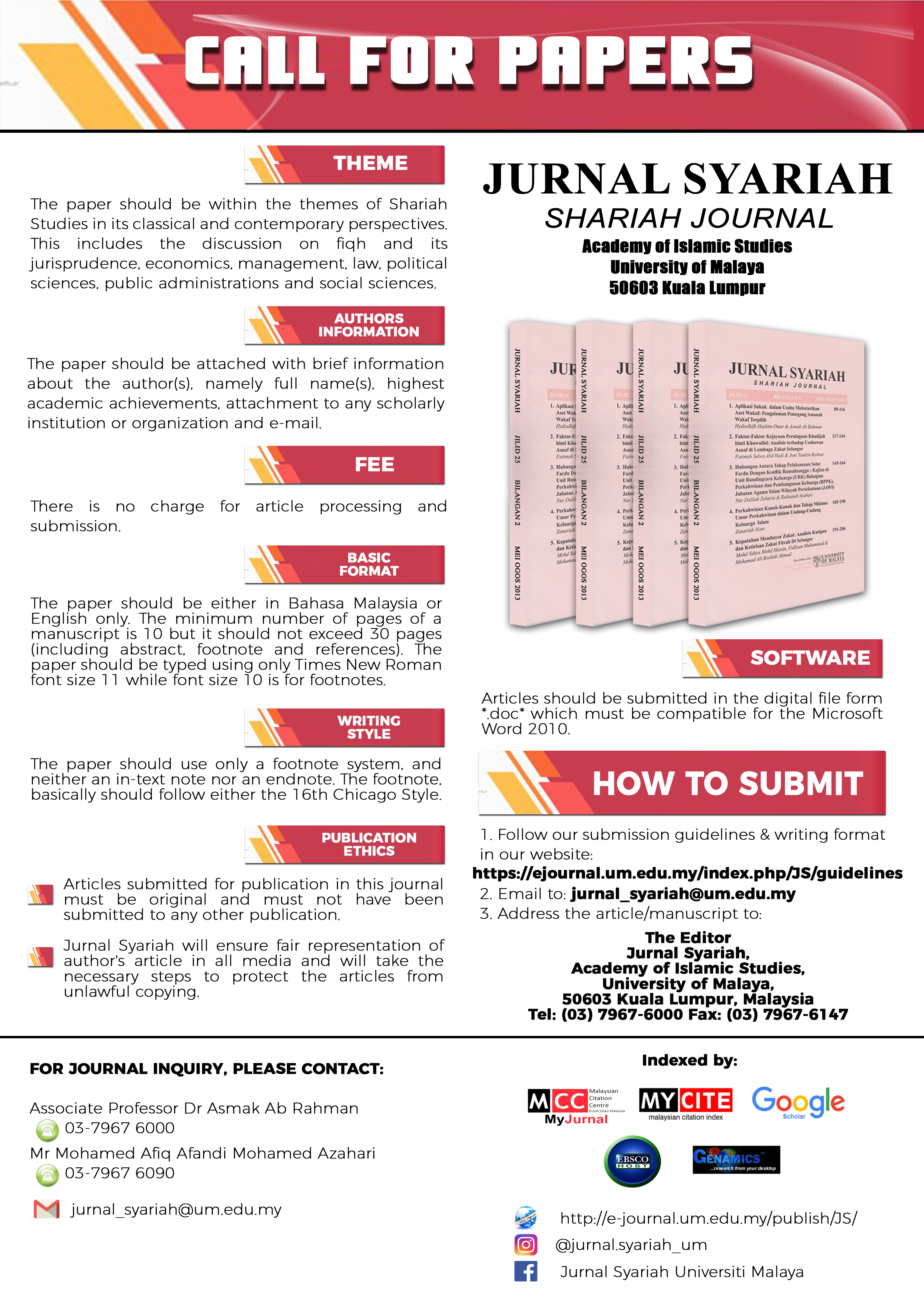CONTEMPORARY ISLAMIC POLITICAL DISCOURSE ON THE POLITICAL ETHICS OF STATE OFFICIALS
Keywords:
political ethics, state officials, political activities, political consciences.Abstract
This article specifically discusses political ethics in the Islamic perspective. Observing the practices of state officials in Muslim countries in this contemporary period (i.e. as practiced by the President and Vice President, Prime Minister, governor or mayor, secretary of state, or by the members of the legislature), it is apparent that not much attention is being paid to political ethics as taught by Islam. Thus, for most Muslims, the political organization raises more disadvantages than benefits. This article is intended to discuss the norms of ethics and political morals taught by Islam that must be used as a reference or as guidelines of conduct by Muslim state officials. In so doing, politics can really bring justice, harmony, success, and happiness, not only for state officials, but also for their nation both in life on this mortal earth and in eternal life in the hereafter. This study is based on a research of the literature relating to this article with the following conclusion: According to the Islamic political perspective, there are at least nine kinds of ethics that state officials should adhere to in carrying out their political activities, namely, the pursuit of truth, trustworthiness, fairness, a sense of genuine concern for the fate of the people, a sense of shame, courage, acceptance of other people’s opinions in a consultation, ability to fulfil political promises, and treat all people equally before the law.
Downloads
Downloads
Published
How to Cite
Issue
Section
License

This work is licensed under a Creative Commons Attribution-NonCommercial 4.0 International License.
COPYRIGHT: All rights reserved. Not allowed to be reproduced any part of articles and contents of this journal in any form or by any way, whether electronic, mechanical, photocopying, recording or otherwise without permission in writing from the Chief Editor, Jurnal Syariah.



















